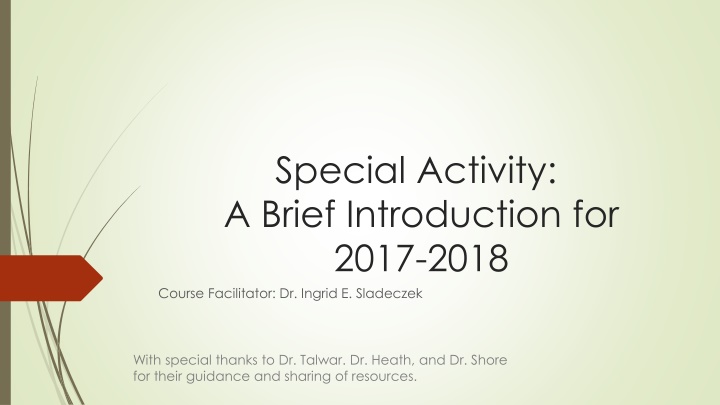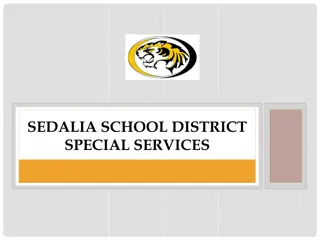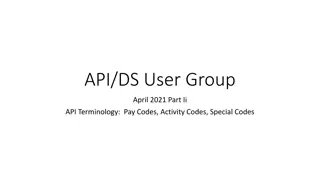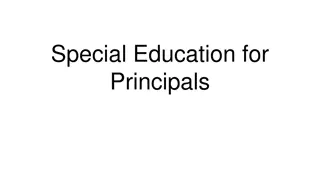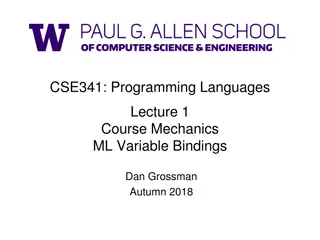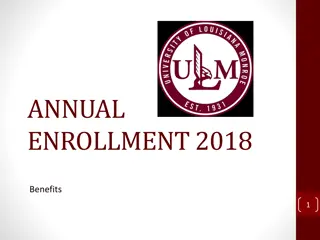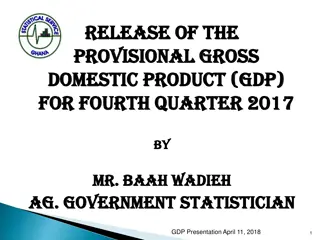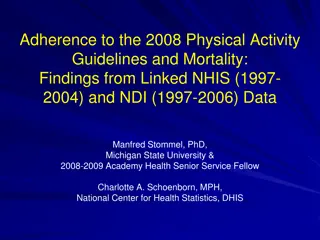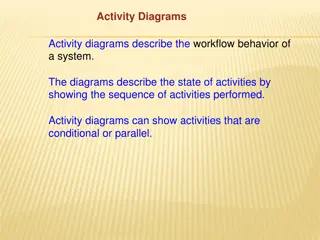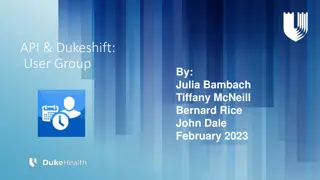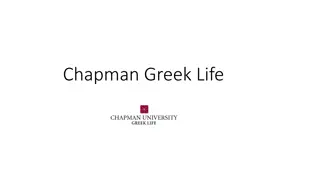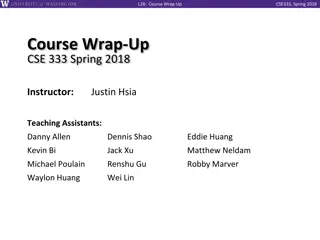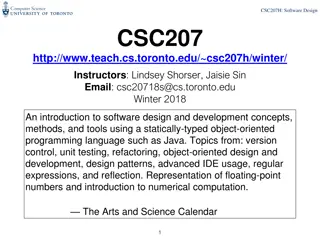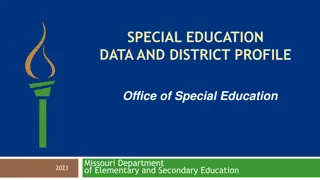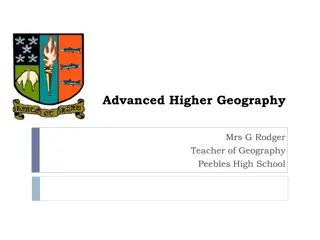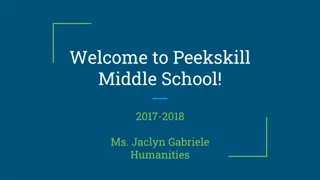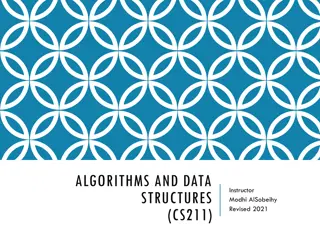Insights into the Special Activity Course for 2017-2018
Delve into the course facilitated by Dr. Ingrid E. Sladeczek, offering a capstone project that allows students to explore their interests, merge knowledge with professional goals, and develop a personalized project. The course includes seminar meetings every two weeks, various project formats, and two approaches: Research-Based or Practice-Based projects. Attendees are encouraged to dedicate time to their projects and engage fully in the learning process.
Download Presentation

Please find below an Image/Link to download the presentation.
The content on the website is provided AS IS for your information and personal use only. It may not be sold, licensed, or shared on other websites without obtaining consent from the author.If you encounter any issues during the download, it is possible that the publisher has removed the file from their server.
You are allowed to download the files provided on this website for personal or commercial use, subject to the condition that they are used lawfully. All files are the property of their respective owners.
The content on the website is provided AS IS for your information and personal use only. It may not be sold, licensed, or shared on other websites without obtaining consent from the author.
E N D
Presentation Transcript
Special Activity: A Brief Introduction for 2017-2018 Course Facilitator: Dr. Ingrid E. Sladeczek With special thanks to Dr. Talwar. Dr. Heath, and Dr. Shore for their guidance and sharing of resources.
What is this course about? It is an inquiry-driven project. It is the capstone project for the M.Ed. What does that mean? It should reflect your interests. It allows you to bring together your knowledge and professional interests. It is a project that allows you to develop and deepen an area that reflects your own personal interests and goals.
How often do we meet? The specific dates of the course will be gone over at the first class on Monday, September 11th, 2017 from 6:05 p.m. to 8:55 p.m. Please note: We will meet roughly every two weeks (see course schedule given out in the first class). So there will not be a class every week. Why not every week? Because you need to be working on your own to progress. You must try to continually work on this throughout each semester so make sure you put in your schedule time to devote to this sizeable project. You are required to attend ALL of the seminars. You may work with another student on your Special Activity, however, the expectations regarding the breadth and scope of the project will be adjusted accordingly. At the final class meeting (April 16th) we will have a poster exposition, similar to how you would present at a conference or exhibition, followed by a dinner at a local restaurant. The final due date for your entire project is April 23, 2018.
What form can the special activity take? The special activity project may take on numerous physical forms, for example (and not limited to) a formal paper, a curriculum plan, an instructional unit, a web site, a resource set, a research report, or a video document.
Approaches to the Special Activity There are 2 approaches and you can choose one: 1. Special Activity Research Based Project 2. Special Activity Practice Based Project
Research Based Project Students may negotiate a project with an individual professor (usually in the Full-Time Faculty Member's interest area). These projects can range from working as part of a research team in an apprenticeship model to working on a particular project in collaboration with the professor alone. With a written report at the end. Ultimately, this is to be agreed upon with the professor and course instructor. If you are interested in this approach, please contact me at ingrid.sladeczek@mcgill.ca or via the conference calls in the summer to find out more details.
Practice Based Project This type of project seeks to advance the way a given service (e.g. teaching, nursing, therapy) is understood and supported. This might typically occur through the collation, organization, provision, exploration, or analysis of existing resources, practices, or services for the community.
What types of special activity projects have been done in the past? Examples of Past Special Activity Projects Include: Examining new elementary teachers challenges and perceived principal support Examination of second-language acquisition Social skills curriculum for implementation in elementary schools Barriers to academic success for students with learning difficulties Literature review of the Daily Five and literacy Implementation of a personalized eating-assistance program for oncology and geriatric inpatients who were at risk for malnutrition Use of Ipads in literacy development at an early elementary level Handbook of self-regulated learning strategies for teaching in Quebec
What is the instructors role? To act as a facilitator and advisor to help you through the process of developing and finishing your project. To offer guidance on the scope (too big/too small) of the project, suggesting resources that can help you with the process or content of your project. This will be done through short lectures and strategies to help the process, discussions in large groups, and individual meetings.
Scope of project Your project must be reasonable in size such that it can be completed within 2 semesters. There are no options for extensions. And I will repeat this numerous times that you need to schedule time in your schedule to do this. It takes time and must be advanced over the course of the 2 semesters. It should advance your knowledge and competence, is useful and interesting to you, and helps you to make a professional contribution to the field of educational psychology and its applications in educational practice, whether in schools, higher education, health education, or elsewhere. Remember: It is 6 credits per term = 12 credits total. That means approximately 300 hours per term devoted to this activity.
How do I communicate with the instructor? You should keep regular contact with instructor so you can receive guidance, feedback and help. You can do this by: Updates during class in group and individual discussions. Handing in assignments and reports during class that will be listed in the course outline to receive feedback. Email contact: ingrid.sladeczek@mcgill.ca Individual appointments either in person (Office Room 541) or via phone/skype. Please ask for these appointments in advance to find a suitable time. If you suspect that your project will involve ethics approval (any project that involves researchwill require ethics approval), you will need to do this as soon as possible. Please be in contact with me in May or June so that you can get started on your ethics application during the summer and ideally be ready to submit it in early to mid September. I will be setting up 2 conference calls, one on Saturday, May 27, 3 p.m. 4:30 p.m. (you need to register with me if you will be on the conference call) and Thursday, June 15, 6 p.m. 7:30 p.m. Note that I am on sabbatical until August 31st, hence, I am travelling and working in other locations, besides McGill University.
How will the seminars be run? The class meetings will generally be conducted as seminars, sometimes mini conferences, sometimes divided into discussion groups based on overlapping interests or expertise. The primary content will be in relation to your projects, relevant skills that the instructor can bring (e.g., mini workshops on writing in APA publication style, preparing or finishing up ethics applications, presenting your work at professional days or conferences, or writing up a project for publication consideration). There is no required textbook, but it is strongly recommended that you purchase or get access to the Publication manual of the American Psychological Association (6th edition), and the corrections to the first printing at http://supp.apa.org/style/pubman-reprint-corrections-for-2e.pdf. Other references will be listed in the syllabus. Note that there will be strict deadlines regarding the submission of project components. Everyone must complete their projects by April 23, 2018!
How will the Special Activity project be marked? The project will be marked on the standard McGill graduate letter-grade pattern and will count for 100% of the overall grade in EDPE 697 and 698 (12 credits). A graduate studies grade below a B- is considered failure; the acceptable range is A, A-, B+, B, and B-. In the past, the modal grade has been an A with A- being the most common. A few B- range grades have happened in circumstances usually related to effort and time expended, use of feedback provided, or other items that will be indicated in the Special Project Evaluation. The rubric and general guidelines for the qualities of the project that are needed for the grades of A, A-, B+, B, and B- will be discussed further in the syllabus and in class.
Cautionary note! You need to plan your time very carefully, thus you need to set time aside for this project that is commensurate with 12 graduate credits. Schedule time to work on it! This is not a type of project you can complete within a few days or weeks! Yes, it definitely takes time and work! But at the end you can have a great sense of achievement! And a significant contribution to knowledge and practice!
Any other questions? This power point was intended to provide a brief introduction for the Special Activity. See you on September 11th, 2017! Wishing all of you a most wonderful summer!
